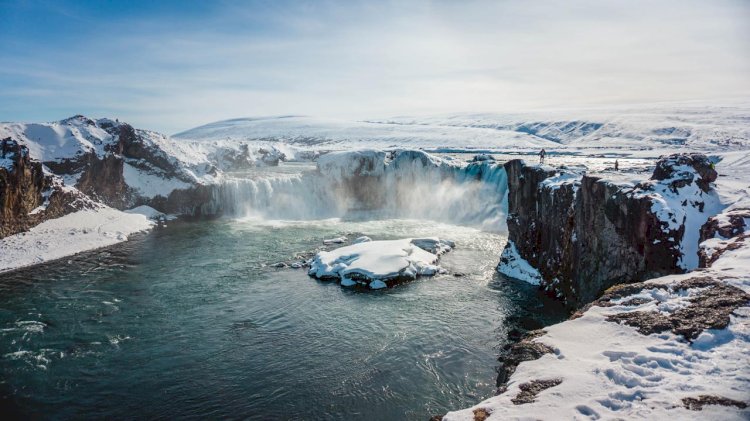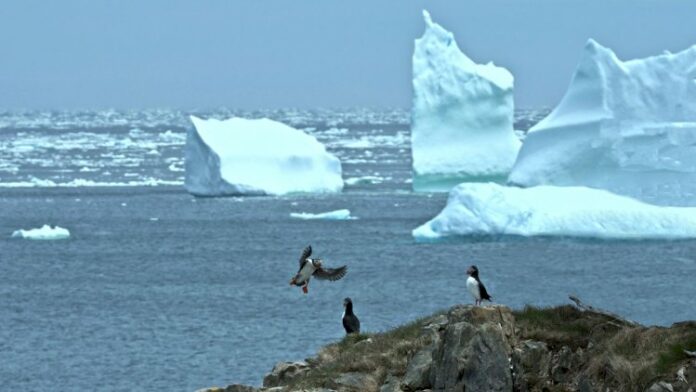The dramatic loss of Arctic sea ice through climate change has only a “minimal influence” on severe cold winter weather across Asia and North America, new research has shown.
The possible connection between Arctic sea-ice loss and extreme cold weather – such as the deep freezes that can grip the USA in the winter months – has long been studied by scientists.
Observations show that when the regional sea-ice cover is reduced, swathes of Asia and North America often experience unusually cold and hazardous winter conditions.
However, previous climate modelling studies have suggested that reduced sea ice cannot fully explain the cold winters.
Now, a new study by experts from the University of Exeter, the Royal Netherlands Meteorological Institute and the Energy and Sustainability Research Institute in Groningen, has shed new light on the link between sea-ice loss and cold winters.
For the research, the international team combined observations over the past 40 years with results from sophisticated climate modelling experiments. They found that the observations and models agreed that reduced regional sea ice and cold winters often coincide which each other.
They found that the correlation between reduced sea ice and extreme winters across the mid-latitude occurs because both are simultaneously driven by the same, large-scale atmospheric circulation patterns.
Crucially, it shows that reduced sea ice only has a minimal influence on whether a harsh and severe winter will occur.
The study is published in leading science journal, Nature Climate Change.

Dr Russell Blackport, a Mathematics Research Fellow at the University of Exeter and lead author of the paper said:
“The correlation between reduced sea ice and cold winters does not mean one is causing the other. We show that the real cause is changes in atmospheric circulation which moves warm air into the Arctic and cold air into the mid-latitudes.”
Over recent decades, the Arctic region has experienced warming temperatures through climate change, which has led to a large decline in sea-ice cover.
This reduction in sea-ice cover means that areas of open water increase, which in turn allows the ocean to lose more heat to the atmosphere in winter – this can potentially alter the weather and climate, even well outside the Arctic.
Recent studies have suggested that the reduced sea ice or Arctic warming has contributed to recent cold winters experienced in the mid-latitude region – and that as the sea-ice reduces further through climate change, cold winters will become more frequent and severe.
Now, this new study suggests that reduced sea ice is not the main cause of the cold winters. Instead, the cold winters are likely caused by random fluctuations in the atmospheric circulation.
Professor James Screen, an Associate Professor in Climate Science at the University of Exeter said:
“The are many reasons to be concerned about the dramatic loss of Arctic sea ice, but an increased risk of severe winters in North America and Asia is not one of them.”
Dr John Fyfe, a Research Scientist at the Canadian Centre for Climate Modelling and Analysis, who was not involved in the research, writes in Nature Climate Change:
“Blackport and colleagues put to rest the notion that Arctic sea-ice loss caused the cold mid-latitude winters, showing instead that atmospheric circulation changes preceded, and then simultaneously drove sea-ice loss and mid-latitude cooling”.
Minimal influence of reduced Arctic sea ice on coincident cold winters in mid-latitudes by Russell Blackport, James Screen, Karin van der Wiel and Richard Bintanja is published in Nature Climate Change.




